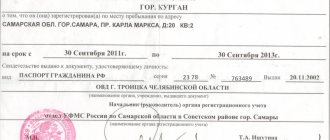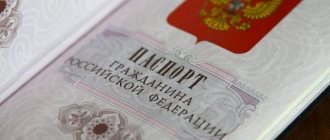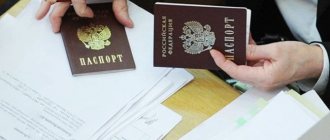Place of stay
This is a place where a citizen stays temporarily for no more than 90 calendar days. Such places of temporary stay (temporary residence) include:
- Sanatorium-resort complexes.
- Property purchased in another city/region.
- Hotels, guest houses, hotels.
In such places, a citizen can work, stay and live without any penalties from the state, if he has not exceeded the above period of 90 days.
What is it and what grounds are needed for drawing up
An act of non-residence at the place of registration is an official document that records the fact that a citizen does not live at his registration address. It is needed in a situation where people who live in an apartment want to apply for a subsidy or want to resolve in court the issue regarding the forced eviction of one of those registered in the home.
For whatever reason, it becomes necessary to confirm that a person does not live in the premises, just the words of other residents are not enough. That is why, in order not to waste time and effort, it is better to prepare in advance and clarify all aspects of drawing up a non-residence document.
Such an act is the basis for the eviction of a person from the place of his actual registration. To confirm this fact, one of the evidence may be a person’s failure to pay utility bills for 6 months. In this case, the interested party can provide payment documents that will certify the fact that all payments were made by it independently.
It must be said that in the event of a conflict situation in which a person does not want to be evicted from the apartment, he has the right to prepare a document to the contrary that will prove that he lives in the living space from which they want to evict him.
The reasons for eviction of an unwanted tenant may be the following:
- repeated incidents of hooliganism;
- non-compliance with the rules of cohabitation;
- use of residential premises for other purposes;
- violation of sanitary and fire safety standards, etc.
An application to remove a person from registration at the place of residence can be submitted either to a close relative or to any other person, including someone with whom family ties have been severed. One of the reasons for the dissolution of family ties is divorce.
Place of registration and place of permanent registration
Article 27 of the Russian Constitution states: every law-abiding citizen has the right to freedom of movement and free choice of place of residence.
Since since 1993, the term propiska has been replaced by the term registration, the place of permanent registration is, in fact, the citizen’s permanent residence address, as evidenced by the stamp in the passport.
The place of permanent residence of citizens will be:
- Private houses.
- Privatized apartments.
- Municipal apartments and dormitories.
- Service housing.
- Apartments.
- Mortgage housing.
- Boarding schools, nursing homes.
When applying for a job or study in another city, you should notify the state registration authorities about the change of residence, make the required notes in your passport and issue temporary registration at the specified new place of residence.
Fictitious citizen registration
In legislation, fictitious registration is understood as registration of a citizen of the Russian Federation at the place of stay or residence, for which incorrect or deliberately false data was provided, as well as registration of a citizen in a residential area without the intention of living there.
For invalid, that is, fictitious registration in residential premises at the place of stay or permanent residence, criminal liability is provided in the Russian Federation. Punishment is a fine of up to 500,000 rubles, a fine in the amount of a citizen’s income for three years, or forced labor for up to five years with deprivation of the citizen’s right to hold certain positions.
Registration procedure for foreigners
If a person who is a citizen of a foreign state crosses the border with Russia, then he is obliged to register within a specified period of time. The procedure is regulated by the provisions of Federal Law No. 109.
If a hotel or other similar institution is used for temporary residence in the country, then registration of a foreign citizen is carried out by the administration of this organization. If a person is invited to work for a Russian company, then it is the head of the company who should deal with this issue.
If a rented apartment is used for living, then the foreigner himself must take care of his registration within the established time frame. It is temporary, so before the end of this period it is important to again carry out certain procedures that will allow you to continue to stay on the territory of the Russian Federation, otherwise you will have to pay a large fine for overdue registration.
How do you register yourself?
Any foreigner can independently register with the Main Directorate for Migration of the Ministry of Internal Affairs after arriving in Russia. To do this, you can contact not only the Main Department of Migration Affairs of the Ministry of Internal Affairs, but even the MFC. Sending documents by mail is permitted.
The rules for self-registration of a foreign citizen include:
- it is important to fill out the registration form correctly, and the procedure is performed only in Russian;
- if a person does not know Russian, then he will have to use the help of a notary or translator;
- all information is entered on the basis of your existing passport and migration card;
- corrections to this application are not permitted;
- It is advisable to use the samples available at the migration service in order to avoid serious errors in the application.
You are allowed to use the remote registration method, for which the necessary documents are sent electronically to the FMS. A fee of 300 rubles is paid for registration.
The service specialist checks the information entered and then gives the foreigner the detached part of the application. This document serves as proof that the person is in the Russian Federation legally.
If you do not complete the process within 7 days after crossing the border, you will have to pay a fine for late temporary registration.
Persons exempt from liability
Procedure for paying a fine
As in any legislative act, Federal Law No. 376 contains a list of persons who are not subject to its action and to whom penalties do not apply.
According to the text of this regulatory act, the following citizens are exempt from administrative liability:
- unregistered children and their parents;
- first degree relatives (spouse);
- relatives of the second group of kinship - grandparents and grandchildren;
- citizens who have permanent registration in the same locality where they actually live.
It is important
Those citizens who have registration in the same subject of the Russian Federation in which they live (for example, are registered in the Moscow region, but actually live in Moscow) are also exempt from administrative liability.
Living outside the place of registration is extremely dangerous!
Each person must have permanent registration, where he must reside permanently. Under certain conditions, an additional temporary registration at the place of residence may be issued, for example, if a citizen needs to come to another region for a short period of time.
FMS employees are often faced with the fact that people permanently live not at their place of registration, but in other real estate. Such actions can lead to negative consequences for citizens.
Fine for living without registration, in which case it is imposed
It follows from this that 90 days will begin to be calculated only from 00 hours on the 27th.
A thorough knowledge of the laws will help to establish the exact time of liability for late registration, in some cases this will allow you to avoid penalties. Now you need to understand the issue when it takes place.
We recommend reading: What is the punishment for crossing a solid line?
What are the consequences for the owner of temporary registration of foreign citizens?
If it is discovered that you have not done this, you will face an administrative fine of 2,000 rubles. To avoid this, you need to notify the migration service about renting out an apartment within 7 days from the moment the citizen begins living in your apartment.
For many owners of apartments and houses, this becomes a kind of business. There are a lot of people who want to register. After all, its presence presupposes the receipt of many benefits that citizens of the Russian Federation enjoy. This includes official employment, obtaining a medical insurance policy, and admission to universities.
However, if such a fact was proven by employees of migration authorities or special police units, then, depending on whether this violation is primary or secondary, the migrant may be subject to two types of punishment provided for by the Code of Administrative Offenses of the Russian Federation:
- Fine. Its amount is set in the range from two to five thousand rubles (the specific amount is set by the employee of the body that identified the violation, at his own discretion, based on the circumstances of the case known to him);
- A fine imposed in conjunction with deportation. This type of punishment is imposed if this violation has been detected repeatedly. At the same time, the legislator makes differences in the status of deported persons, assigning options for carrying out the procedure - at his own expense in relation to those persons to whom this type of punishment is applied for the first time. And at the expense of the state in the form of forced expulsion followed by a ban on entry for a certain period of time (for those persons who have been repeatedly ordered to leave the Russian Federation, but they continue to be on the territory of the state, thereby violating migration legislation again.
Is it possible to live in an apartment without registration?
- The procedure for registering Russian citizens has been violated;
- The rules for controlling migration by persons with foreign citizenship were violated.
Referring to recent legislative changes, in addition to the fact that a fine is imposed for violating the established registration procedure, criminal liability has also been introduced.
Save your time and nerves.
a free consultation within 5 minutes .
Temporary registration of foreign citizens
The representative of the receiving party is obliged to notify the migration service about the presence of a visitor from another country. The owner of the property must inform the Federal Migration Service about this during a personal visit or send a registered letter. The following shall be submitted to the competent authority:
- application of the established form;
- copies of the visitor's passport and migration card.
Within a week after entering the Russian Federation, a foreigner is required to register. In the future, he can issue a temporary residence permit and residence permit.
Citizens of countries for which there is a visa regime for entry into Russia can obtain temporary registration only for the period of validity of the visa. Representatives of the CIS countries and other republics with a simplified entry system into the Russian Federation receive registration for 3 months and then have the opportunity to extend it. Kazakhstanis have the right to stay in Russia for 30 days without registering.










